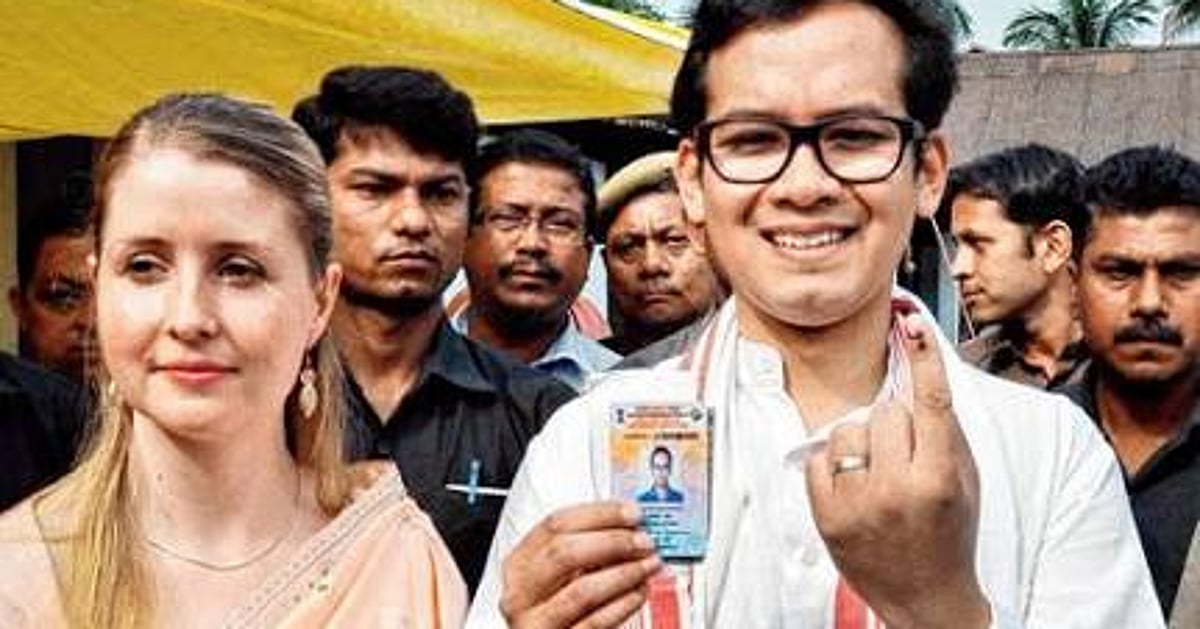 |
|
The recent accusations leveled against Elizabeth Gogoi, wife of Congress MP Gaurav Gogoi, alleging links to Pakistan's Inter-Services Intelligence (ISI), have ignited a firestorm of political controversy in Assam. The timing of these allegations, just before the upcoming state elections, has led many observers to believe this is a calculated move by the ruling BJP to undermine the opposition Congress party. The accusations, initially made by BJP national spokesperson Gaurav Bhatia, were amplified by Assam Chief Minister Himanta Biswa Sarma through a series of posts on X (formerly Twitter). Sarma, known for his aggressive political style, highlighted Elizabeth Gogoi's past employment with an American senator known for ties to the Pakistani establishment, as well as a period spent in Pakistan working for an organization allegedly linked to the ISI. He further cited an invitation extended to Gaurav Gogoi and his startup by the Pakistani High Commissioner in 2015 to discuss India-Pakistan relations at the Pakistan High Commission in Delhi, insinuating a connection between these events and the current accusations. The careful selection and presentation of these facts, alongside the timing, strongly suggest a politically motivated campaign.
The political implications of these accusations are significant, particularly given the upcoming Assam Assembly elections. The BJP, despite being in power since 2016, faces challenges in certain regions of the state, notably upper Assam. The fact that Gaurav Gogoi successfully defended his Jorhat seat in the recent Lok Sabha elections, despite the BJP's considerable efforts, serves as a stark reminder of the Congress party's strength in the area. The attack on Elizabeth Gogoi can be interpreted as an attempt to tarnish the image of a prominent opposition figure and to capitalize on any potential negative sentiment that these allegations might generate among voters. By associating the Congress MP with potentially damaging ties to a rival nation, the BJP aims to weaken his standing and, by extension, the Congress party's prospects in the upcoming election. The accusations have already generated considerable media attention and public discussion, effectively shifting the focus of the political narrative.
The ethical considerations surrounding these allegations cannot be ignored. While it is vital for a healthy democracy to scrutinize the actions and affiliations of public figures, the manner in which these accusations have been presented raises serious questions about the appropriateness of using such allegations for political gain. The lack of concrete evidence presented so far, coupled with the timing and the highly charged political context, suggests that due process and the presumption of innocence have been compromised. The potential for damage to Elizabeth Gogoi's reputation, regardless of the ultimate veracity of the accusations, is significant. The controversy also highlights the broader issue of the use of unsubstantiated allegations as a tool in political warfare, raising concerns about the erosion of trust in political institutions and processes. Furthermore, the focus on Elizabeth Gogoi, who is not a directly involved political figure, raises ethical questions about the targeting of family members to advance political objectives. This strategy, while effective in generating headlines and capturing public attention, ultimately undermines the principles of fair play and respect for individuals' privacy within the political landscape.
The events unfolding in Assam provide a case study of the complex interplay between politics, national security, and personal reputations. While investigations may ultimately clarify the extent of Elizabeth Gogoi's connections, the narrative surrounding this controversy will undoubtedly continue to shape the upcoming election campaign. The BJP's actions represent a risky strategy, relying on the potential for negative public perception to sway voters rather than focusing on substantive policy debates. It remains to be seen whether this tactic will prove successful, but it certainly underscores the increasingly aggressive and often ethically questionable tactics being employed in contemporary political campaigns. The broader impact on the integrity of political discourse and the erosion of public trust remains a significant concern. The intense focus on this particular controversy might overshadow crucial policy discussions and essential debates concerning the well-being and future of Assam, ultimately damaging the democratic process itself.
Source: Elizabeth Gogoi's 'ISI links': Is Himanta laying groundwork for Assam polls with accusation?
